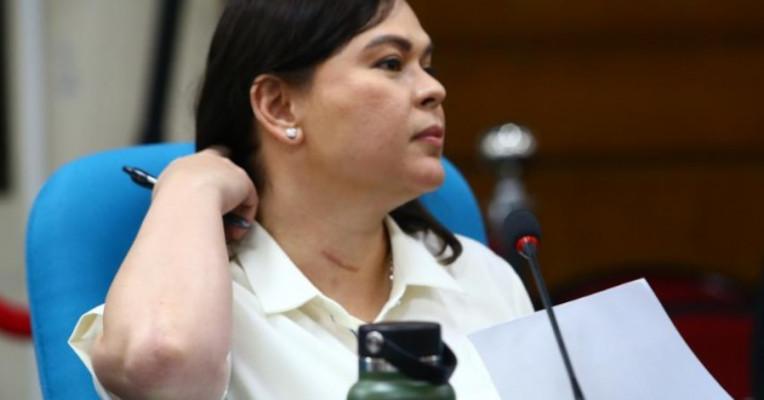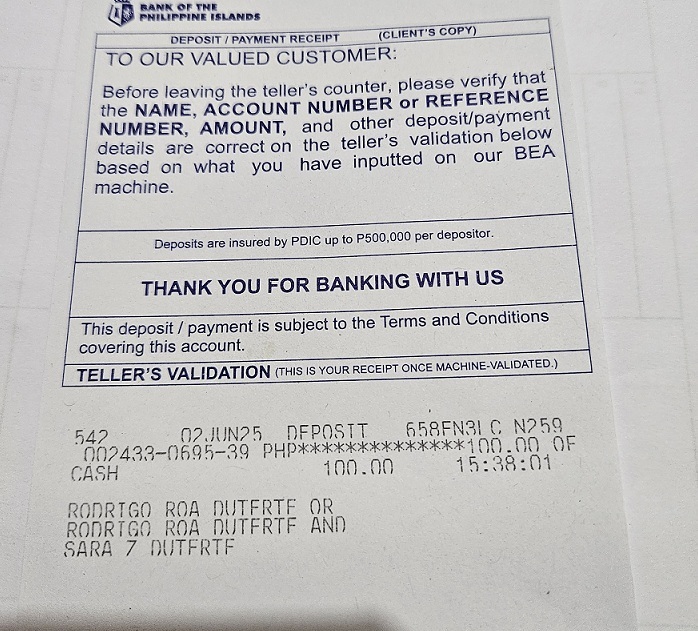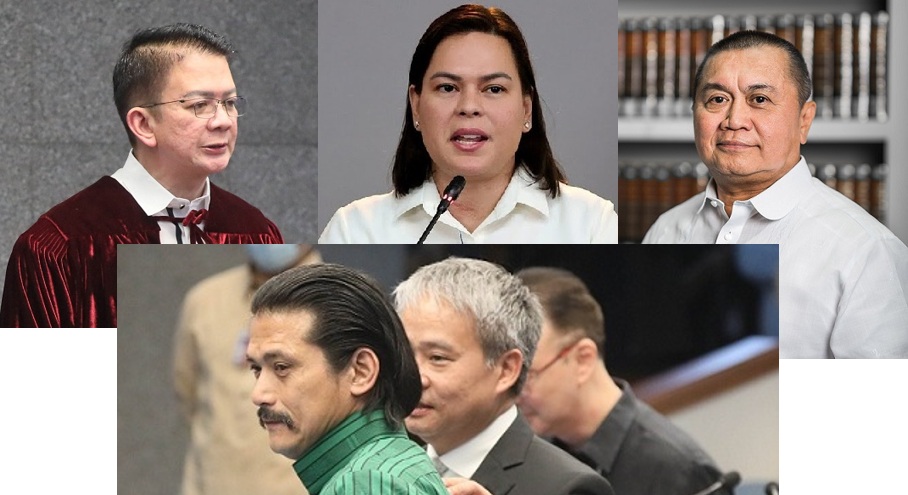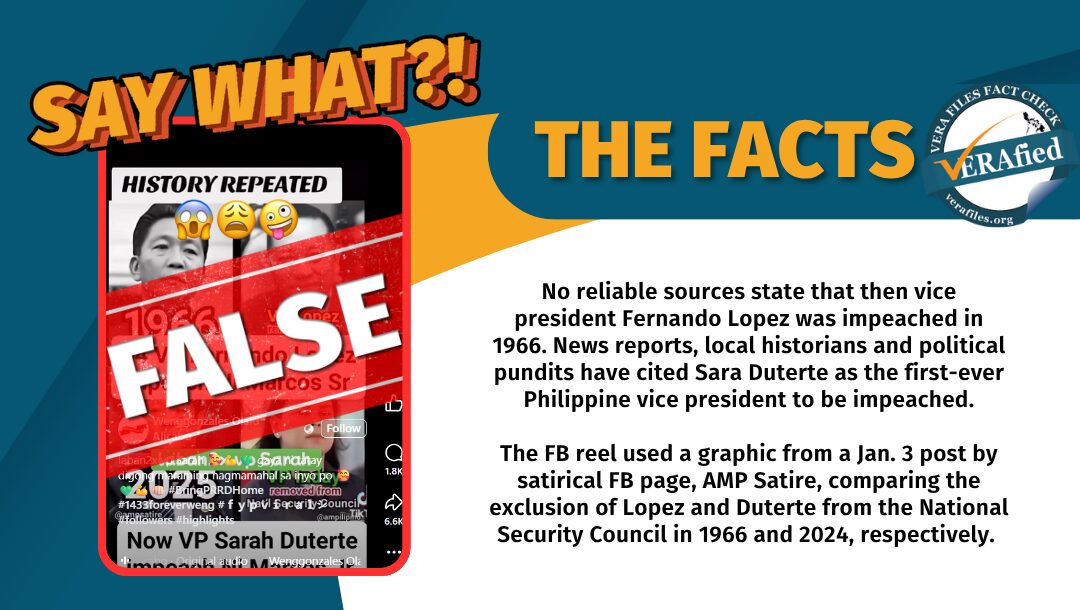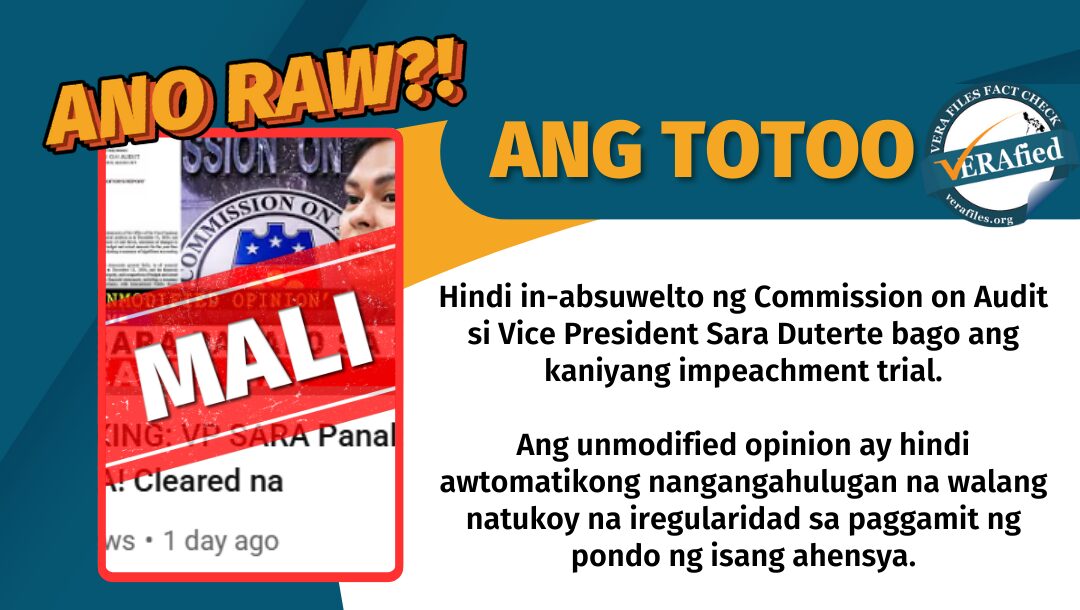After the botched impeachment trial of Vice President Sara Duterte, the appointment of a new Ombudsman is crucial in holding her accountable. Here’s hoping that the next chief graft buster will be very different from the last one.
Earlier, Presidential Communications Office Undersecretary Claire Castro said the next Ombudsman must be upright, courageous and fair — qualities that should be exemplified by all public servants.
We take it to mean the appointee should not be beholden to the president or to any political padrino. He/she should take seriously President Marcos’ statement that even his allies will not be spared if found to be involved in anomalous government deals.
In the case of the vice president, she may have escaped the impeachment trial at the Senate for now, but the Supreme Court ruling that the complaint forwarded by the House was unconstitutional does not cover administrative and criminal complaints that may be filed with the Office of the Ombudsman. The vice president is not immune from administrative and criminal suits. The constitutional immunity covers only the president.
Pursuing the alleged corruption and other transgressions of the law outside the impeachment court will be the next best thing to do to hold the vice president accountable.
I doubt if the senators will have a change of heart if the House will again impeach Sara Duterte in 2026 or 2027, or should the Supreme Court reverse its July 25 ruling. Duterte’s impeachment trial is as good as dead.
The end result of an impeachment proceeding is the removal of the public officer, and perpetual disqualification from holding public office.
The Ombudsman can also impose the penalty of perpetual disqualification from holding public office as a direct penalty for certain violations, like those under the Anti-Graft and Corrupt Practices Act, or as an accessory to other administrative penalties, such as dismissal from service, particularly for grave offenses like dishonesty.
The big difference lies in the speed at which cases are resolved and the burden of proof, which should be beyond a reasonable doubt in criminal proceedings.
It may take the Ombudsman forever to investigate the allegations, but an impeachment court can render a judgment in a matter of days or months. Given the present composition of the Senate, it seems remote that Duterte would stand trial even if the House succeeds in impeaching her again before the 2028 presidential election.
They better move forward, pursuing other strategies to show voters why Sara Duterte is unfit for the presidency and to present alternative candidates who won’t use branded chips and all sorts of names to conceal corrupt transactions and treat public office as a personal fiefdom.
The bigger public enemy in Sara Duterte’s case is disinformation and the Marcos administration’s seeming reluctance to hold her accountable. In fact, the president could be blamed for giving in to her requests for confidential funds and other additional assistance in 2022 when they were still together under the short-lived UniTeam.
One of Marcos’ biggest blunders in his early years in the presidency was appointing Duterte as education secretary, where she squandered not only confidential but also other funding allocations in the department that were later found to be questionable, if not brazenly anomalous.
Perhaps, giving her the education portfolio was a better option than the defense department, which was her preference, but it was a bad decision just the same.
Moving forward, Marcos should be decisive on what to do with Sara Duterte, who may no longer be part of the administration but is still very much part of the government. She should not be allowed to spend the last three years of her term either country-hopping or campaigning in the provinces.
She may be saying that her trips overseas were at her personal expense, but what about those of her security aides? How about the time she spends abroad or while she takes charge of her father’s case at The Hague? While other civil servants are required to report in person at least eight hours every working day, why should we allow the country’s No. 2 highest official to run her office “sometimes virtual, sometimes ghost?”
The views in this column are those of the author and do not necessarily reflect the views of VERA Files.
This column also appeared in The Manila Times.
